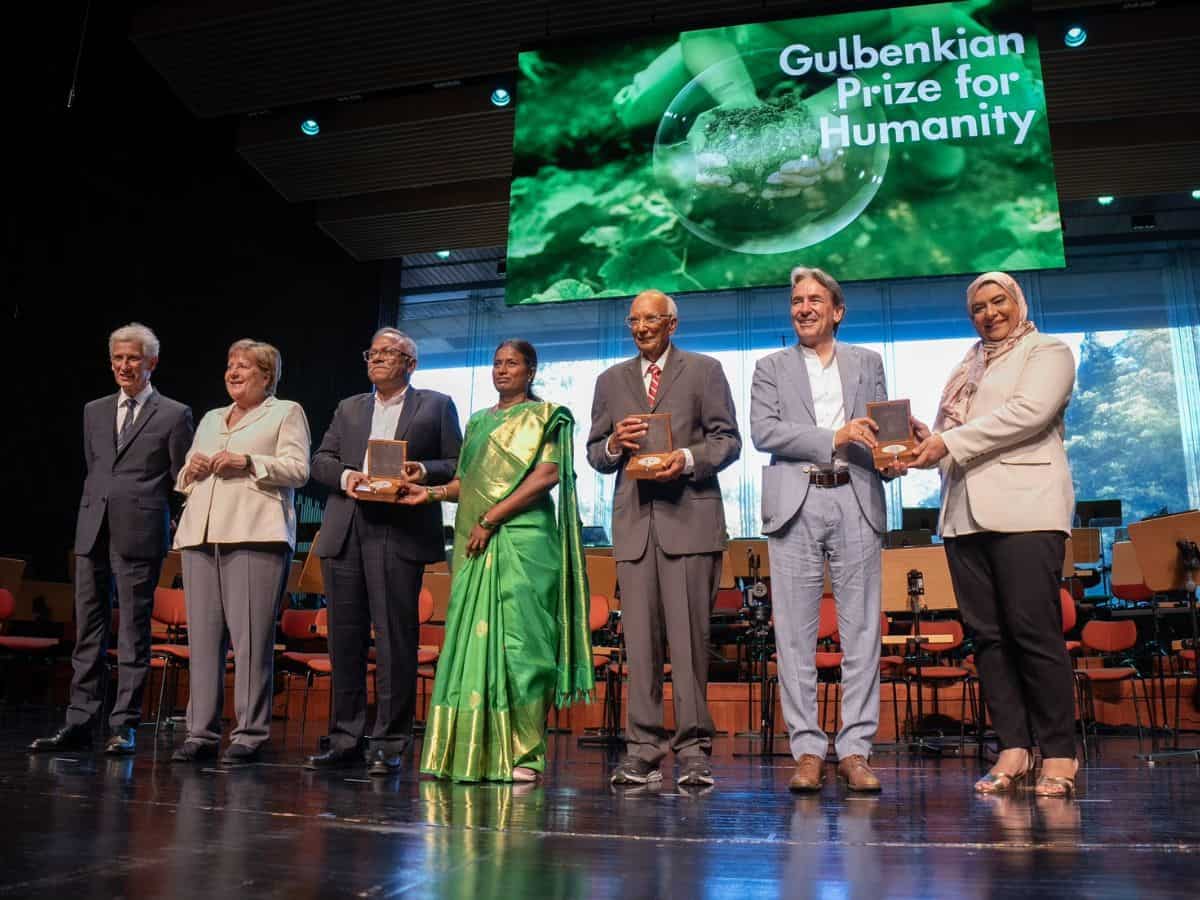
New Delhi: Two Indian entities have been awarded the prestigious 2024 Gulbenkian Prize for Humanity for their pioneering work in sustainable agriculture, the Calouste Gulbenkian Foundation announced on Friday.
The Andhra Pradesh Community Managed Natural Farming (APCNF) programme and Dr Rattan Lal, a renowned soil scientist of Indian origin, share the 1 million euro prize with an Egyptian organization, the Portuguese philanthropic institution said in a statement.
APCNF, implemented by Rythu Sadhikara Samstha (RySS), is recognized as the world’s largest agro-ecology programme, benefiting over a million smallholder farmers across 5,00,000 hectares in Andhra Pradesh.
Vijay Kumar Thallam, Executive Vice Chairman of RySS, told PTI, “The APCNF programme empowers small farmers by enabling them to switch to natural farming methods. It has immense benefits to both farmers and the soil they rely on.”
The programme supports farmers in transitioning from chemically intensive agriculture to ‘natural farming’ methods, including organic residue use and crop diversification.
Dr Rattan Lal, honoured for his soil-centric approach to agriculture, said, “Soil health and sustainable agriculture are crucial to resolve the challenges of food security and fight climate change across the world.”
The jury, chaired by former Chancellor of Germany Angela Merkel, selected the winners from 181 nominations spanning 117 nationalities.
APCNF aims to reach all eight million farmer households in Andhra Pradesh over the next decade and is being replicated across 12 other Indian states.
António Feijó, President of the Board of Trustees of the Calouste Gulbenkian Foundation, said: “We believe their stories will inspire others to apply similar approaches in other regions and help us build a sustainable future for all.”
“Climate change and the resulting global warming have led to an increase in extreme weather events and are endangering food security around the world. …This year’s winners have demonstrated in an exemplary fashion how climate-resilient and sustainable food systems can be developed and put into practice,” Merkel said.
The prize is an initiative of the Calouste Gulbenkian Foundation, rewarding individuals and organisations who are leading society’s efforts to tackle the biggest challenges facing humanity today: climate change and nature loss.
The award underscores India’s growing role in addressing global food security and climate challenges through innovative agricultural practices.
The recognition comes as climate change continues to disrupt food systems globally, highlighting the importance of sustainable farming methods.
Both Indian winners expressed hope that the prize would help scale their efforts and inspire similar initiatives worldwide.
